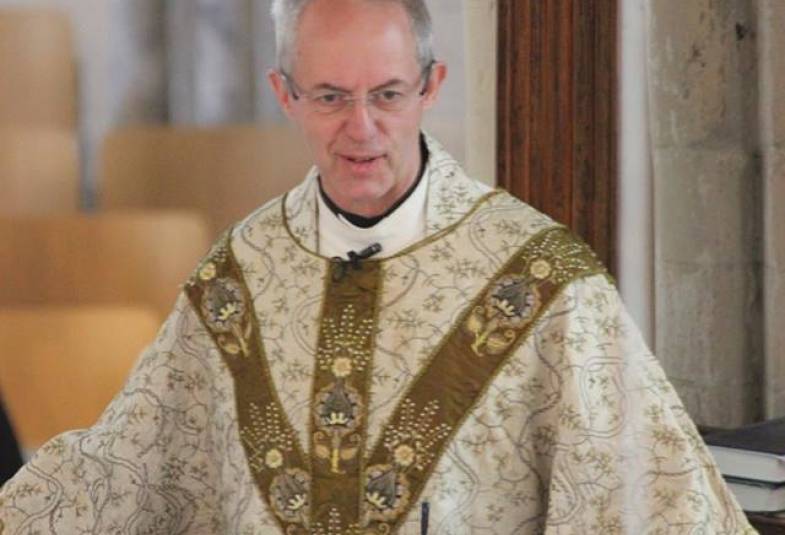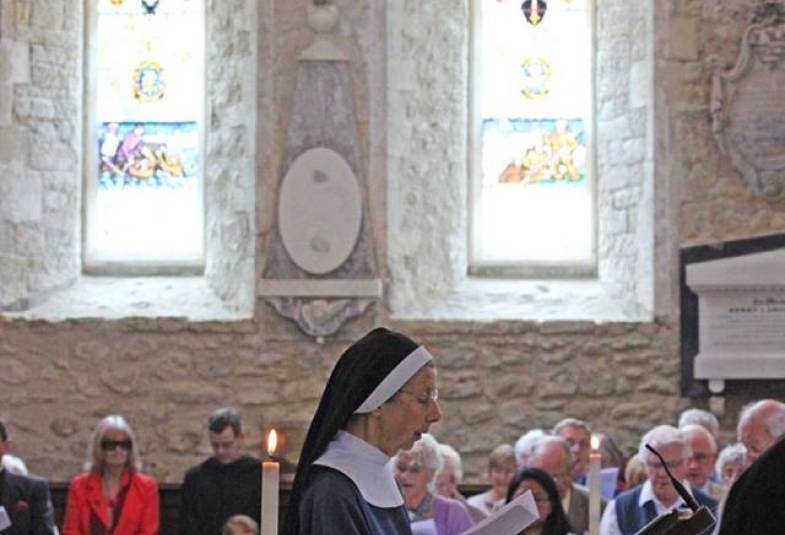29/07/2016

Read Archbishop Justin Welby's sermon:
Hebrews 2:10-15; John 12:1-8
It is a great privilege to be at this service, and I feel very honoured to share it with you.
With almost all that we hear read, we hear it read in accents and voices that carry – that carry loudly in the cathedral, that carry loudly around the world. Because they are stories that are known by so many people; the anointing at Bethany especially.
Yet when we stand back and consider the circumstances in which these readings were first written, first seen, first done – of course they were hidden. They were almost invisible.
We need to remember that the Epistle to the Hebrews was written to those who were struggling to maintain their faith as unknown, unseen, small communities across the Eastern Mediterranean, who were beginning to slip away, to give up.
The Epistle to the Hebrews was written to say to them: “It may feel very hard. You may be persecuted. You may be under great pressure. You may be suffering. But the reality that no one around you sees – in the busy streets of the towns and cities where you have your churches – the reality is that God is in the midst of you. He has chosen you and called you and has a purpose for you.”
And, of course, the anointing at Bethany [John 12:1-8]. It would have attracted a little bit of attention. But the vast majority of those who lived anything more than a few hundred yards away would never have been aware that it happened; something going on at a party, a dinner.

The Pharisees had their spies, we know about that, and they would have had their report. But apart from that it was unknown, unseen. Yet it’s one of the linchpins, one of the turning points of the Gospel of St John, the point which focuses the mind forward to the death, burial and resurrection of Jesus – that swings the attention to this extraordinary moment of hope and future. And yet even at the time it was misunderstood, criticised, unseen.
There seems to be much call in this nation, at this time, for the visible, the grand gesture, the quick solution, the strong answer. But it is the hidden that is essential. It is what is seen in the sight of God that is essential. Not only in the response of the church to what is the greatest opportunity for many years to reshape the values of our society; not only is that contribution essential, but it is only going to be a valuable contribution when it springs out of the hidden life of prayer and of the religious communities.
Let us not deceive ourselves. What you are, what you have been, what in the grace of God you will be, is as essential, if not more so, than ever it was. The church is not only diminished by a decline in Religion, it has a chunk of it amputated in a way that is deeply dangerous to its future life. You are essential, albeit hidden.
And why is the hiddenness not a denial of what is essential? It is because this act of worship says that the future and the flourishing of church, as well as religious community, and thus of society, of the nation, depends on its adherence, on its affection, on its deep involvement with Jesus in prayer, which is what we see in the Gospel reading.
It is also in Religion that the realities of the life and disunity of the church are felt most acutely. Those of you who live in communities will know what I say when I say it is not always easy to get on with those who live with you. Is it not extraordinary how after a while the person who always pauses in just the wrong place in the verse in the Psalm becomes not merely noticeable, but something that is almost a capital offence? [laughter]. It is so demanding to live together in worship, in prayer. It is so demanding when the Judas Iscariots seem more numerous than the religious communities. Not so much the betrayers of Jesus, but the ones who say: “Why don’t you do something useful?”
And yet what you are doing is the most essential of all. Particularly for this order, this group that we celebrate today, that we give thanks for today. Because at the heart of your prayer is the prayer for unity.
If we go back to the Gospel reading, we see this absolute focus on the single person of Jesus Christ – as throughout John, but it becomes more and more laser-like at this point in the Gospel, and from here forwards.
Yet in the church today, to describe our focus on Jesus Christ as being laser-like would certainly be a ridiculous exaggeration. We find almost anything to speak of and consider important other than the person of Jesus and the act of sacrificial worship.
This is a gesture of absolute sacrifice and commitment. That we are reading it today says to those of you who are in Religion that what you are offering is something of immeasurable value. It may be something that others do not see, that they criticise, but it is valuable beyond imagination.
At the heart of your own prayer has been the prayer for the unity of the church. At Lambeth Palace each day we pray a prayer for the unity of the church. There’s one line in it that has enabled us to experience the suffering caused by division. It is noticeable that when we come to the Eucharist, which is each day during the week, that very often some of those in the Eucharist are in tears at the moment of the distribution.
The church in this country at this time, if it’s going to be one that can respond, must be one that is immersed in prayer and the religious life, because without that we have nothing to bring. But it must be one that is deeply committed to unity – to seeking unity, to praying for unity, and to being willing to suffer, as the Letter to the Hebrews speaks of, that makes the pioneer of their salvation perfect through suffering.
The Epistle was speaking of something different, but our suffering today must be to feel the pains of our divisions. Without them we cannot know the richness, the mystical depths, and breadth and height of the love of Christ fully. We cannot be a church that has much to say to the world in a way that will have great impact. And our witness to the overflowing love of Christ will be utterly impoverished. All this comes from the words of Jesus in John 17.
So you are essential. You are a cause for our deep gratitude and thanksgiving. You are hidden, and your value will not often be seen and recognised. Your calling to pray for unity is one which the church needs more and more, at a time of increasing conflict – of the martyrdom of priests at mass in France, of those caught up in Germany, of a Coptic priest in Egypt two or three weeks ago. These attacks bring us back to the importance of the Religious life.
The point of hope, at the end of this, is that although when this story took place the Hebrew congregations that received the letter were small, struggling and invisible – now this a story that goes round the world.
This is something that is known in every country on earth. The reason is very simple: as we come to Jesus Christ, the lavish overflowing of the grace of God is what transforms our hidden prayers into the riches of the good news of the gospel for all humanity.
Amen.